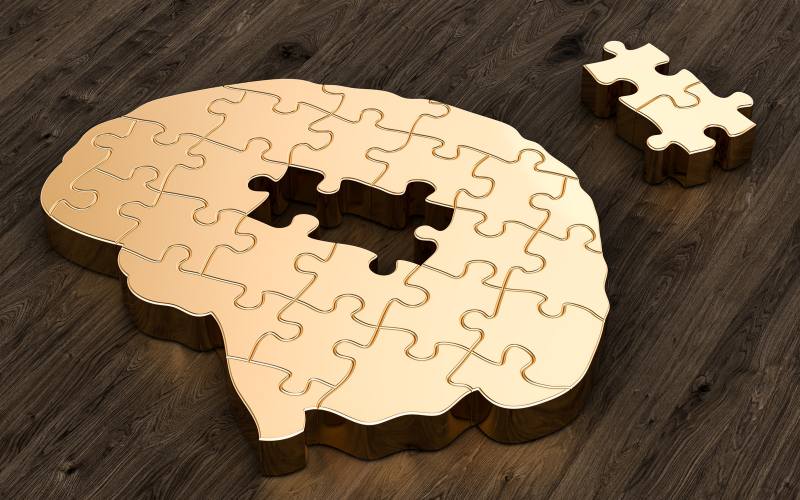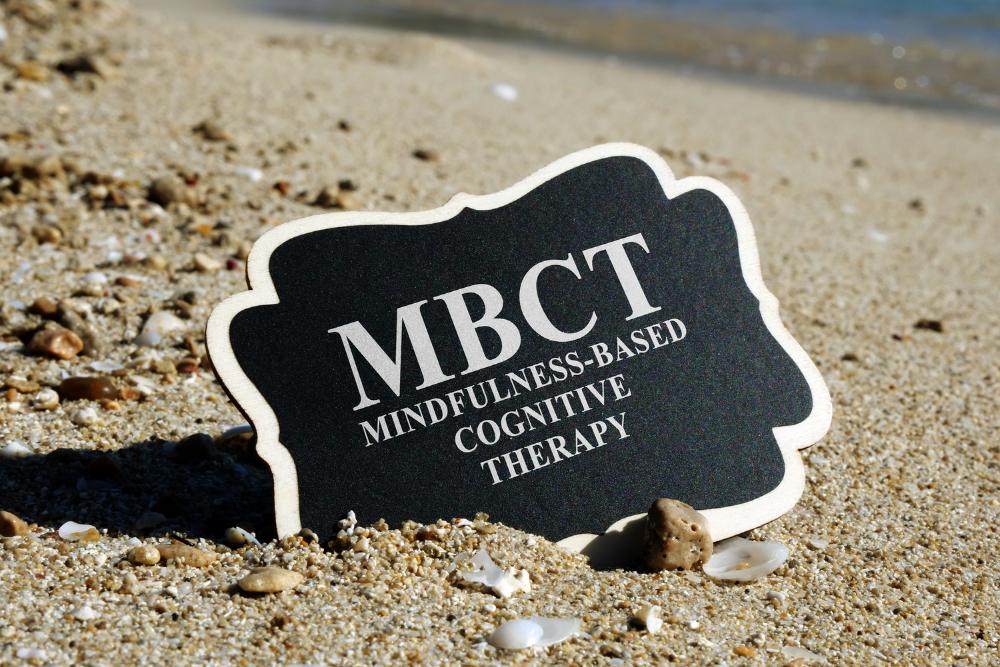One of the common issues that causes a patient to seek out therapy is depression,…

What Is Neuropsychology?
What Is Neuropsychology?
When it comes to clinical psychology, there are different fields within this that many experts can specialize in. One of these fields is the field of neuropsychology, which is concerned with the way that a person’s behavior and skills are related to their brain structure and systems. Experts may also conduct neuropsychological tests to diagnose patients who are suffering from issues like brain disorders.
Read on to learn more about neuropsychology and how this can be applied to improve our everyday life and understanding of our minds.
This article contains:
What Is Neuropsychology?
First things first, what exactly is neuropsychology? As mentioned above, this is a field of specialization under the umbrella of clinical psychology. It specifically focuses on the study of a person’s mind and behavior, as well as the person’s relationship with their body’s central nervous system. This is especially pinpointing the two cerebral hemispheres and related subcortical structures. Neuropsychologists study the relationships between the brain and then “the mind”, or behavioral functions. It is not simply a school of thought or an intellectual pursuit– no, neuropsychology is so important because it can also be used, in a practical sense, to diagnose brain disorders.
History of Neuropsychology
Currently, neuropsychology is considered to be a fairly new discipline of psychology. It was not until 1980 that Fundamentals of Human Neuropsychology was published– this was the first textbook that helped to define the field of neuropsychology. That being said, the development of neuropsychology as it is today can be traced back very far. In fact, it has roots all the way back in Ancient Egypt’s Third Dynasty. The Ancient Egyptian priest Imhotep has surviving writings on medicine– these were some of the first to take a scientific approach to medicine and disease, discussing topics such as the brain, trauma, and abnormalities. The Ancient Egyptians, though, did still believe the heart to be the seat of the soul, rather than the brain.
It was Hippocrates who said that the brain was actually the seat of the soul. He was the one to first draw the connection between the brain and the behaviors of the body. While he did not go into much detail in his own writing about the actual brain functions, he switched the attention of the medical community to the brain. This helped to make significant strides in psychology and neuropsychology. Throughout the years, after this, there were very many other scientists and psychologists that helped to further neuropsychology and bring it to what it is today. These scholars and scientists include Paul Broca, Carl Wernicke, and Rene Descartes.
How Does Neuropsychology Work?
When someone is being evaluated by a neuropsychologist, how exactly does this work, anyway? Of course, this person will likely be experiencing certain unusual changes and symptoms, which will prompt them to see a neuropsychologist to identify what is going on in their brain. An evaluation is comprised of a few parts. First, any relevant historical information will need to be provided and then compiled, such as any genetic conditions that the patient may be predisposed to, as well as any previous diagnoses. This information can be gained by access to medical records and interviews with the patient, too. Sometimes, family members and friends are also interviewed to provide additional insight.
When it comes to the actual exam, tests are usually administered that target different symptoms or traits such as memory or language. There are different ways that these tests can be administered, including standardized tests using oral questions or pen and paper, as well as manipulation of materials like puzzles. A neuropsychologist may test based on some of the symptoms that we mentioned previously, which, like memory, are cognitive functions. However, they may also test on psychological aspects like mood and personality.
Uses of Neuropsychology
Neuropsychology can be used to understand how the different areas of the brain and the different systems are working– or not working, in some cases. A lot of times, when there is a concern in someone’s behavior development, or physical abilities, we will turn to neuropsychology in order to determine whether there is an issue, and what this issue is. When neuropsychology is applied in a practical sense to an individual patient– rather than in studies or for research– it is typically used to identify brain disorders.
Some of the symptoms of a brain disorder that can bring attention to a patient are any changes in factors such as personality, memory, language, or reasoning. Of course, these are just a few examples. If the patient has always had a lack of memory and this has not been a true change or something unexpected, then it may not warrant a neuropsychological evaluation. That being said, there are some conditions that could come on slowly, rather than suddenly. So, if you have any concerns at all– about yourself or a loved one– you should speak with a doctor or a psychologist.
After a neuropsychological evaluation, neuropsychologists do detect certain brain disorders fairly often and have to deal with these. They may help to treat them or suggest what to do next when they diagnose a patient. These more commonly dealt with brain disorders include developmental issues like autism, as well as learning and attention disorders. Concussion and traumatic brain injuries are also considered to be brain disorders and can have effects on rational thinking, memory and brain function, for instance. Epilepsy, brain cancer, strokes, or dementia can also be attributed to many of the symptoms that make a neuropsychological evaluation necessary.
How Can Neuropsychology Help?
As is mentioned above, neuropsychology has practical applications. It can help us to diagnose different brain disorders or conditions such as a traumatic brain injury. So, who can benefit from neuropsychology or from these tests and diagnoses? There is not a particular demographic that neuropsychology serves. Rather, it can be used to serve people across all age ranges and developmental spans. Essentially, it can be helpful for any person when there is a concern about that person’s brain functions. This could, therefore, apply to infants with developmental concerns, those who are experiencing academic challenges as children, or those dealing with work or social challenges in adulthood or experiencing issues with declining functions in old age– just to name a few. Neuropsychologists often deal with brain and nervous system disorders such as learning and developmental disorders, epilepsy, or strokes and dementia.
Depending upon the concerns of a patient or the age and developmental level of the patient, different tests may be administered to diagnose this. For instance, if the patient is an infant that has developmental concerns, a neuropsychologist cannot perform a test on their language skills, as an infant cannot yet talk.

Frequently Asked Questions
What is neuropsychology in simple words?
If you have heard the term neuropsychology, you are likely wondering what exactly this means! The term neuropsychology refers to, essentially, the study of a person’s mind, behavior, and their relationship with the central nervous system in the body. When it comes to the person’s relationship to the central nervous system, we are looking at the two cerebral hemispheres and related subcortical structures in particular. It looks at the integration of psychological observations on behavior.
What is an example of neuropsychology?
Neuropsychology is the study of a patient’s mind, behavior, and their relationship with the body’s central nervous system and the two cerebral hemispheres and related subcortical structures. Often, neuropsychology is used to treat and diagnose brain disorders, in addition to assessing cognitive and behavioral functions. Some examples of symptoms that can lead to the need for a neuropsychological evaluation can include changes to a person’s concentration, memory loss, changes in personality, and issues or sudden changes in coordination. Some of the ways that these tests can be administered is by reading, reasoning, problem solving, and testing processing speed– among many others!
What is the focus of neuropsychology?
The study of neuropsychology is focused on the different relationships– and the qualities of these relationships– between the brain and behavior. Those who study neuropsychology work to understand the different relationships between the brain function and the mind or mental functions. This can also be utilized and applied to real life by using neuropsychological testing to diagnose brain disorders that a person may be dealing with, undiagnosed, and wondering what is going on. Once these are diagnosed, it is possible for those brain disorders to be treated, and it of course makes it easier for the patient and their loved ones to understand what is going on.
What is a neuropsychological disorder?
If you have heard the term neuropsychological disorder or neuropsychiatric disorder, you may feel alarmed or feel that there is a negative connotation here. However, these terms simply refer to a wide range of medical conditions, such as seizures or attention deficit disorders. These medical conditions are ones that involve psychiatry and neurology, too. Neuropsychiatric disorder and neuropsychological disorder are both blanket medical terms to describe these different kinds of medical conditions. Some symptoms of these kinds of disorders include memory deficits, difficulty with language, and lack of reasoning ability.



